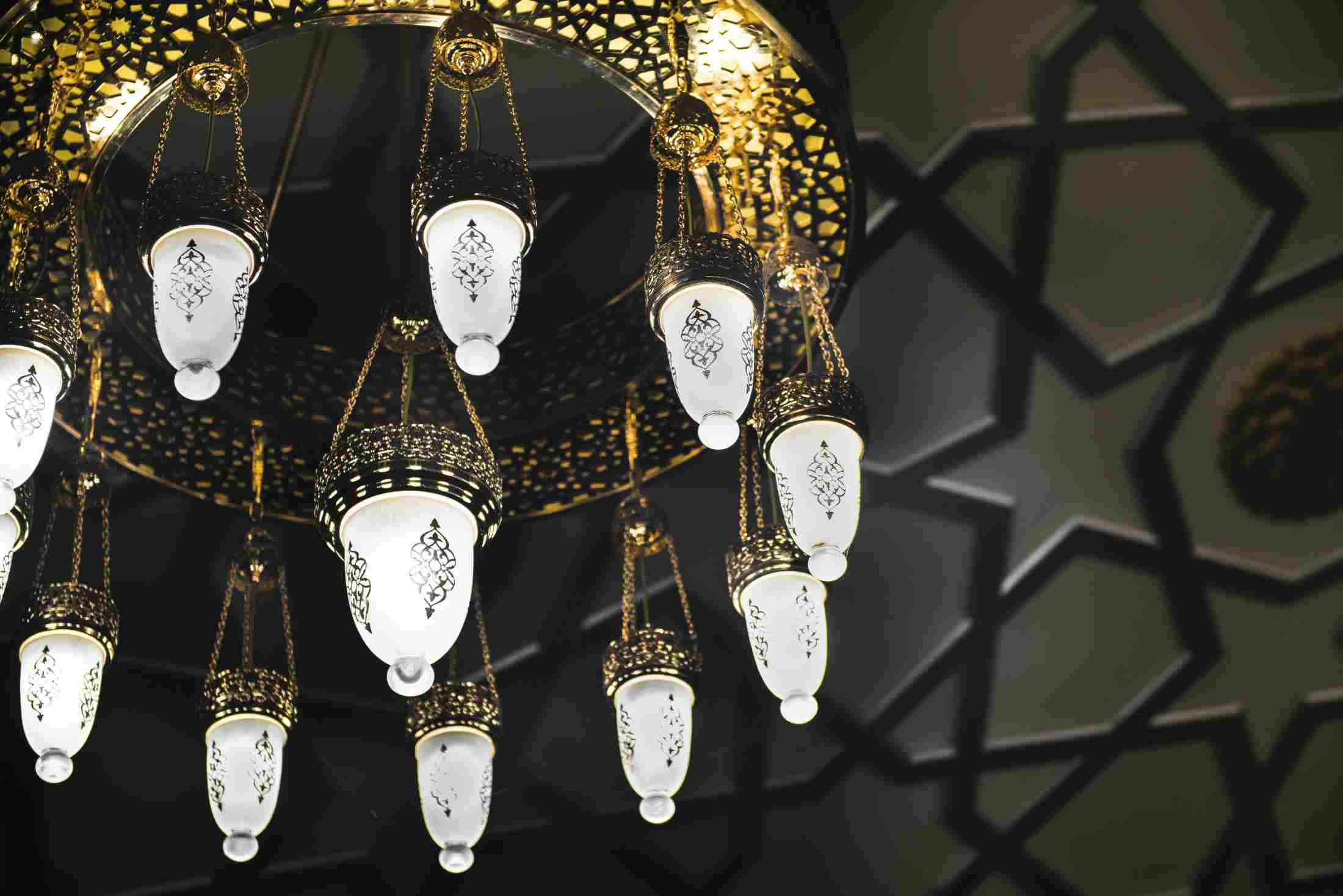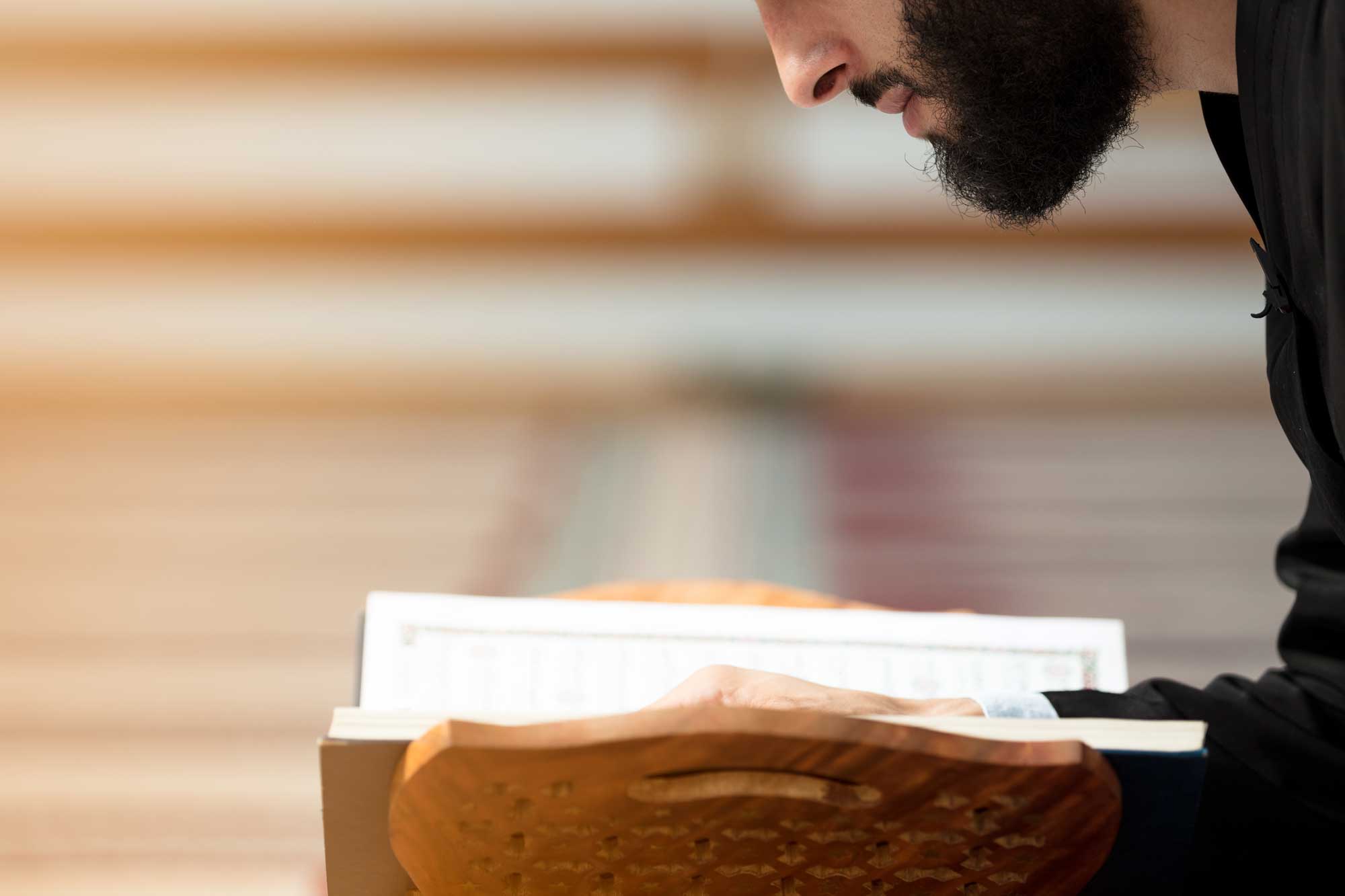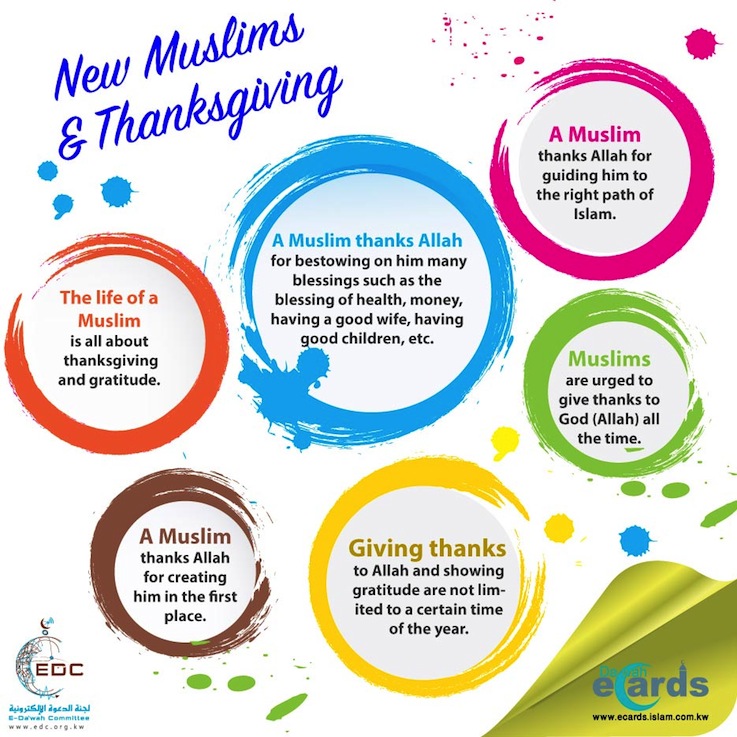
Why not engage in premarital affairs?
How would you answer this question? As a young Muslim, do you feel this question is relevant to you at all? Have you discussed it with your friends?
Is it a question you have thought about? Do you understand why not?
If you are uncertain about how you would answer this question, don’t worry. Perhaps the most misunderstood of all human relationships is the premarital relationship between young men and women, especially among those who are just coming of age and coming to terms with their sexuality.

Companion Stares at Woman In Hajj - How Prophet Reacts?
The dominant understanding is that premarital relationships should be allowed and even encouraged. The most common arguments are that premarital relationships help young people socialize and deal with one another, and that they help those who are considering marriage to have up close and personal, intimate knowledge of their potential spouse.
Do you agree with these two arguments? Do they reflect your way of thinking?
The latter argument couldn’t be further from the truth. Learning to socialize with the opposite sex, however, is a commendable personal goal. But it cannot be left to chance and definitely need not involve having an intimate, physical relationship with a member of the opposite sex.
Are Islamic Teachings Old-Fashioned?
Depending on your upbringing, who your friends are, and your exposure to television shows and movies, you might have been socialized to believe that premarital relationships are glamorous, filled with romantic overtures, and a natural expression of a man’s attraction towards a woman.
In fact, some young Muslims are so convinced that premarital relationships are the norm rather than the exception that, when told “dating is haram [forbidden],” they respond by saying: “Why is Islam so backward? Why can’t we just get with the times and realize that today, premarital relationships are OK because not everyone is thinking about sex all the time.”
Is that right? And so how would you propose going about helping those young people who tend to think about sex some or most of the time and not, as you say, all of the time. What shall we tell them?
Even the premise that the Islamic prohibition on premarital relationships is solely due to the notion that people think about sex all the time is false.
Friendship between men and women

What Does It Mean to Love for Sake Of Allah?
There is no outright prohibition of friendship between men and women and, yes, those friendships can also be warm, caring, and long lasting. The important question is, how are these men and women related to one another?
In Islam, men and women who are ineligible to get married to one another, who are each other’s mahrams, are able to have very powerful, long lasting, warm and caring, platonic relationships. It is helpful to review who these people are. In Surat An-Nur, after telling the believing men to lower their gaze, Allah Almighty continues in the next verse:
{And say to the believing women that they should lower their gaze and guard their modesty; that they should not display their beauty and ornaments except what (must ordinarily) appear thereof; that they should draw their veils over their bosoms and not display their beauty except to their husbands, their fathers, their husband’s fathers, their sons, their husbands’ sons, their brothers or their brothers’ sons, or their sisters’ sons, or their women, or the slaves whom their right hands possess, or male servants free of physical desire, or small children who are not yet aware of the private aspects of women; and that they should not strike their feet in order to draw attention to their hidden ornaments. And O ye Believers! turn ye all together towards Allah, that ye may attain Bliss.} (An-Nur 24:31)
So, yes, in principle, there is no problem with men and women being friends, as long as the men are in any of the categories that the above verse mentions.
Non-Mahram Relations
For those men who are non-mahrams, that is, eligible to be married, the risk is always there that one or the other will become vulnerable and will incline towards the other outside of the framework of a marital contract.

Three Young Companions Empowered by the Prophet (PBUH)
Think about it. If you have come of age recently, you know that with the onset of puberty you experienced distinct and profound changes in your body. Among those changes were an increased awareness of your own sexuality and the occurrence of ‘wet dreams,’ or nocturnal emissions.
With hormones raging and very new and intense feelings of sexual stimulation, sometimes brought on by the least provocation, it is possible that a young person will become preoccupied with thinking about sex, even if he or she takes no action to actually attempt to relieve his or her sexual tension.
The fact of the matter is, sexual desires become pronounced and you might have experience mixed emotions, including confusion, guilt, and outright shame.
Our beloved Prophet Muhammad (peace and blessings be upon him) understood human development well. In a teaching narrated to us by `Abdullah ibn Mas`ud, (may Allah be pleased with him), the Prophet admonished young people thus,
“O young men! Whoever among you can marry, should marry, because it helps him lower his gaze and guard his modesty (i.e., his private parts from committing illegal sexual intercourse etc.), and whoever is not able to marry should fast, as fasting diminishes his sexual power.” (Al-Bukhari)
Timeless Islamic Teachings
We often end up falling into the trap of believing that maybe Islamic teachings are outdated and old-fashioned.
On the contrary, Muslims accept the Qur’an and the teachings of our beloved Prophet Muhammad (peace and blessings be upon him) as comprehensive, universal, and timeless.
Therefore, no matter where or during what time period in human history, premarital relationships have and will be forbidden because of the detrimental impact on the people involved as well as on society in general.

5 Stories Show How Prophet Muhammad Treated the Youth
Allah Most High ordains upon us a lifestyle according to which human life is sacred and which considers righteous conduct, mutual respect, and chaste and dignified relations to be the norm rather than the exception. We read in the Qur’an
{O Prophet! When believing women come to thee to take the oath of fealty to thee, that they will not associate in worship any other thing whatever with Allah, that they will not steal, that they will not commit adultery (or fornication), that they will not kill their children, that they will not utter slander, intentionally forging falsehood… and that they will not disobey thee in any just matter,- then do thou receive their fealty, and pray to Allah for the forgiveness (of their sins): for Allah is Oft-Forgiving, Most Merciful.} (Al-Mumtahanah 60:12)
In the context of social relations, Allah Most High has ordered men and women who wish to establish an intimate and physical relationship to do so by signing a contract, to bind each of them to certain rights and responsibilities towards the other. The marital relationships is characterized therefore as a “solemn covenant,” (An-Nisaa’ 4:21).
The solemn covenant
Contrast a “solemn covenant,” to having no contract and no covenant whatsoever. In a premarital relationship there is no contract. There might be some commitment but it is not stipulated by any conditions: both the man and the woman can walk away from the relationship without any fear of breaching a contract, because there is none.
You must know how painful it is for young people to “break up” or “break off” or “get dumped,” and how painful it is for them to be “in love” with a boy one day only to find him with another girl the next.

Cherish Your Wife the Prophet's Way (10+ Hadiths)
In the most tragic cases, young women have lost their virginity to young men who spoke so passionately about love and future marriage, but then one day just stopped calling, or fell instantly out of love.
To the extent that men and women will, out of fear of Allah and out of a desire to please Allah, uphold their contractual obligations, marital relationships are strong, whereas without any contractual obligations and stipulations, both the man and the woman are at risk, as noted above.
Allah Most High desires that we live chaste lives and therefore the Islamic outlook is that we shouldn’t even go near, come close to, or approach the possibility of becoming vulnerable towards a man or a woman’s attraction, unless we are serious and committed enough to sign a marriage contract and take on the rights and responsibilities associated with it. Allah warns in the Qur’an,
{And come not near unto adultery (or fornication). Lo! it is an abomination and an evil way.} (Al-Israa’ 17:32)
Painful Consequences
While not all premarital relationships are characterized by intimate, physical relations, there are clearly painful consequences for both the boy and the girl who are involved. Dr. Shahid Athar notes in an article entitled, “Sex Education for Muslim Youth and Their Parents” that there are “hazards” for young people engaging in sexual relations prematurely.
He states, “The health hazards of early sex include sexual trauma, increase in the incidence of cervical cancer, sexually transmitted diseases, and teenage pregnancy.”
It is important to note in this instance that Islamic teachings are often preventive in nature so “chances” that a person may become vulnerable to the temptation of one sin or another are excluded.
The preventive nature of the teachings is most obvious when we consider the Islamic prohibition against gambling and the consumption of intoxicants. A person might not become addicted to drugs or alcohol by just having a single drink, but Allah our Creator, out of His mercy for us, has prohibited outright all intoxicants and thus He saves us from the risk that we will ever become addicted.
Closing Thoughts
Premarital relationships are forbidden in Islam. Interaction between men and women is not forbidden, provided that it is conducted according to certain guidelines.
Let us not be tempted to say, “Well, I have no problems with dealing with women as very close friends.” While some men and women might be able to have platonic relationships, there is no guarantee that what starts off as simple friendship eventually leads to some and then strong attraction.
Many people have looked back and regretted that they were not strong enough to resist the temptation to become attracted or to be alone with their friend. It is understood that in contemporary society, men and women mix in the context of work or study. However, the burden is upon the one who is mingling with the opposite sex to stay within the bounds of proper etiquette.
Islam allows great flexibility in the realm of conduct as long as the conduct itself is guided by the Qur’an and the teachings of our beloved Prophet Muhammad (peace and blessings be upon him). If the contact is purposeful, limited, and public, then there is less risk that either the man or the woman involved will become vulnerable to temptation.
None of us can predict with certainty that we will be able to control our emotions and desires.
Almighty Allah knows who among us would be able to handle working and studying with members of the opposite sex. However, Allah in His infinite wisdom also knows that all of us are prone to forget and therefore, to protect us all, there are clear guidelines as to when and how and for what purposes we should interact with the opposite sex.
When a Companion Sough Fornication Permission
The beloved Prophet (peace and blessings be upon him) once counseled a man who sought his permission to commit fornication.
In a most humane and dignified manner, the Prophet asked the young man if he would want another man to commit such an act with his mother or sister.
📰 Read Also: “Can I Have an Affair?” A Youth Asks the Prophet (PBUH)
In this way the Prophet was able to redirect the young man’s attention from trying to satisfy his sexual desires to thinking about the honor and the respect with which he would want his own sister and mother to be treated by other men.
Overall, in placing the act of fornication in a more personal and familial context, the Prophet helped this young man to see the detrimental impact that fornication and other such sins have on society at large.
Celebrating Thanksgiving as a New Muslim – OK?
Thanksgiving is a celebration observed on the fourth Thursday of November in the United States and the second Monday of October in Canada. The celebration is about giving thanks for the blessing of the harvest and of the preceding year.
Though it started as a Christian tradition, the current form of celebration is a culture holiday for all people of all faiths. The celebration is marked by family gatherings, cooking food, being thankful, watching football matches…
A Sense of Gratitude
Muslims give thanks to God all the time. Giving thanks to Allah and showing gratitude are not limited to a certain time of the year. Actually the life of a Muslim is all about thanksgiving and gratitude.
A Muslim thanks Allah for creating him in the first place; he thanks Allah for guiding him to the right path of Islam. He thanks Allah for bestowing on him many blessings such as the blessing of health, money, having a good wife…
We read in the Quran:
So remember Me; I will remember you. Be thankful to Me, and never ungrateful. (2:152)
Allah promised that if we thank Him, He will give us more. This is a divine promise and we believe that Allah never breaks His promises.
He says what gives the meaning of:
Remember that He promised, “If you are thankful, I will give you more, but if you are thankless, My punishment is terrible indeed. (14:7)
These are the things that we should thank God for:
It is God who brought you out of your mothers’ wombs knowing nothing, and gave you hearing and sight and minds, so that you might be thankful. (16:78)
Thanksgiving and Family Ties
New Muslims might find it an opportunity to meet their parents and family members whom they do not see usually.
Meeting parents and family members will strengthen the family ties. It will give them a sense of belonging. And it will give them a feeling that their son or daughter is still a member of the family and he is not detached from them. It will also be a good opportunity to explain to them how Muslims thank God and they do so.
Islam places great emphasis on maintaining family ties. We read in the Quran:
… Beware of severing the ties of kinship, God is always watching over you. (4:12)
The Prophet (peace be upon him) urged Muslims to keep their family ties when he said:
Whoever believes in Allah and the Last Day, let him maintain the bonds of kinship. (Al-Bukhari)
Do’s and Don’ts
When attending such gatherings, please note that your attendance will be judged according to your intention. The Prophet said:
Actions are judged by intentions. (Al-Bukhari)
Don’t participate in any activity that is against the teachings of the Quran and the Sunnah such as eating pork or drinking alcohol. Do not compromise the basic teachings of Islam.
You as a Muslim, should explain to them that thanking Allah is not limited to that day. Muslims thank Allah on all other days of the year.
When offering prayer, a Muslims is thanking Allah. And when helping the poor, a Muslim is thanking Allah. When offering fasting, a Muslim is thanking Allah. And when making hajj, a Muslim is thanking Allah.
The Prophet used to thank Allah when he ate, drank, dressed new clothes, mount on his camel, etc. Therefore the whole life of a Muslim is about thanksgiving from an Islamic perspective, i.e. thanking Allah for His blessings.
It is permissible for a Muslim also to thank anyone who does him a favor. The Prophet is reported to have said:
Whoever does not thank people, does not thank Allah. (At-Tirmidhti)
You are allowed to thank your parents, friends, people next to door, etc.
About thanking parents, we read in the Quran:
We have commanded people to be good to their parents: their mothers carried them, with strain upon strain, and it takes two years to wean them. Give thanks to Me and to your parents– all will return to Me. (31:14)
It’s about God’s Blessings
What is unique about Allah is praising Him, i.e. saying Alhamdullilah.
New Muslims should understand that celebrating thanksgiving is not the sixth pillar of Islam or the seventh article of faith. If you decide not to participate, it is up to you. We are talking about cases in which you are invited to a family gathering.
I would like to invite everyone to sit back, relax, reflect for a moment and count blessings of God on him. You will find countless blessings. God tells us:
… If you tried to count God’s favors you could never calculate them: man is truly unjust and ungrateful. (14:34)
Think of how you are going to thank God for all that. The least you can do is to recognize His infinite mercy on you and declare His Oneness and that He is the only one worthy of worship. God is the most worthy of our thanks, praise and gratitude.
We should note that God does need our thank. It us who benefit from offering thanks to God:
… Be thankful to God: whoever gives thanks benefits his own soul, and as for those who are thankless–God is self-sufficient, worthy of all praise. (31:12)
Prophet Muhammad: A Husband Like No Other
Men and women – a lot of research has gone into analyzing and studying the differences in their physical forms, physiologies, psychological makeup, as well as functional roles in the overall scheme of things i.e. life in this world.
The topic is sensitive because it raises important questions about gender roles, and inevitably ruffles a few feathers when, during these discussions, either men or women appear to come out superior than the other in some aspects of human nature.
Prophet Muhammad: Ideal Husband
In the Quran, Allah has described Prophet Muhammad (peace be upon him) as the role model we should emulate and follow in every aspect of life.
” There has certainly been for you in the Messenger of Allah an excellent pattern for anyone whose hope is in Allah and the Last Day and [who] remembers Allah often”. Qur’an (33:21)
He played many roles during his life, but the one role that he took on very early as a youth, and which stayed as a constant role in his life till his death at the age 63, was that of a husband.
Muhammad was a husband even before becoming a Prophet, father, battalion leader, judge, or leader of the Muslim ummah.
Marriage played a central role during his life. Allah decreed marriage as a means for him to gain financial stability and security (via his wife Khadjiah’s ample wealth); to raise his young children (by marrying Saudah after Khadijah’s death); to form important liaisons (e.g. by marrying Umm Habibah); to establish Islamic laws (e.g. marrying his cousin Zainab abolished an Arab custom that prohibited marrying an adopted son’s divorcee); and to spread the message of Islam far and wide (e.g. his young wife A’ishah propagated over 2000 narrations, and excelled in jurisprudence, especially that related to sexual intimacy and female impurity).
However, before Muhammad became a Prophet of Allah and the official torch-bearer of the Deen of Islam, he was married only once, to an older lady who had been widowed twice already – Khadijah.

Spent Youth Happily Married to Just One Woman, 15 Years Older
Despite living in an extremely misogynistic and patriarchal society where men did whatever they wanted and females were oppressed, exploited and killed with open abandon; where men married an unrestricted number of women according to their whims and fancies, Muhammad stayed chaste as a young man, getting married only after an older woman proposed to him through a third person, and his guardian gave him the go-ahead.
Belonging to an influential and honorable Arab clan, he could have married a multitude of women had he so wished while he was young i.e. from the age of 25-40; a period when a young man’s sexual desire peaks, but he did not. Instead, he remained married only to Khadijah until her death.
Imagine a young man belonging to a well-to-do, influential and high-class family today, taking such an option for himself, as we all know how a man desires female variety, progeny, and ‘freedom’ from responsibilities at this age! Imagine him marrying a 40-year-old woman at the age of 25, and staying loyal to her until the age of 43, never cheating once with another woman.
Besides his chastity, fidelity and loyalty to the one wife he had during the first two-thirds of his life, Prophet Muhammad’s shining qualities as an older husband to all his other wives, also became apparent during the last 20 years of his life.
It is not just the love, care, and forgiveness he showed to his wives that prove his lofty character as a husband, but his decency and chivalry as a righteous man shines forth even more so through what he did not do to them, even though he had the authority to:
He Never Rebuked His Wives in Front of Others
It is common for many husbands to rebuke their wives for the slightest mistake when they are stressed out e.g. not cooking their favorite meal properly, or on time; or for spoiling their shirt while doing the laundry.
Raising his voice at his wife, telling her off with a big scowl on the face in front of others, telling her to ‘shut up’ or ‘get lost’ during a favorite sports game or TV show, or outright calling her names when she shouts at, annoys or nags him – these are things not unheard of for some, if not most, husbands nowadays.
We can imagine how a husband would react if someone sent him food that he likes, and his wife, in a fit of sudden jealousy, threw the dish on to the floor, causing the food to spill and the utensil to break.
How do you think most husbands today would react to such a situation? Don’t you think that most would immediately tell off their wife? Don’t you think they’ll immediately order her sternly to clean up the mess, in front of the men witnessing the incident?
Guess what? This actually happened with the Prophet, yet he didn’t shout at his wife, and cleaned up the mess himself. Being the just man that he was, however, he did command her to compensate for the broken utensil!
Aloofness: His Strictest Reprimand
The Prophet showed immense patience when one or more of his wives behaved emotionally in his presence, whether in public or private.
He never called them names, nor did he ever lift a finger to strike any one of them, even when they’d make him very angry.
The most severe method of ‘discipline’ or reprimand that he used when he was angry at one or more of his wives, was ignoring them (not talking to them) and not visiting them in their private quarters, for a certain period of time, which meant that he turned away from them sexually as well.
This proved to be a very effective method of correcting his wives when they angered him for reasons disliked by Allah and not endorsed by Islam.
He Was Not Controlling
Many new brides confess to receiving a clear list of “don’t’s” from their husbands as soon as the nikah ceremony is over, even before the wedding flowers have wilted.
Examples of such restrictions that husbands place on wives immediately after the wedding, citing their superior Islamic rights over them as the reason, are: You will not talk to your male colleagues and cousins. You will not go to any social gathering without me. You will never take up a job or career. You will visit your parents only once a week/month/year. You will not invite thatannoying girlfriend of yours to our home. You will delete your Facebook account. You will not gain weight etc.
Such restrictions from new husbands are a sign of an underlying insecurity that manifests itself in the form of paranoid possessiveness, irrational jealousy, and an attempt to exert an extreme level of control over their wife – thwarting and suppressing her movement, her halal hobbies and interests, and even her bubbly personality.
The reason that husbands usually provide for such strictness, is the superior rights afforded to them by Islam, as their wives’ guardians/maintainers, to put such restrictions on them for the overall good of the home.
However, the real reason is their fear of losing her love, loyalty, focus and obedience. The prime example of this is when a righteous girl, who habitually observes all the limits of Islam from even before her marriage, becomes a target of manipulation and control from her husband.
A clear test of whether a husband possesses true gheerah (praiseworthy jealousy) or is just controlling, is whether or not he obeys the rules and restrictions of Islam himself.
Since Allah has ordered us in the Quran to always take Prophet Muhammad as our role model, we should recall when he (if ever) tried to control his wives in such a way?
Advocate of Foreplay During Marital Intimacy
In some cultures, manliness is equated with certain manners, beliefs and habits that border on arrogance and uncouthness that is prohibited in Islam, e.g. overeating and belching loudly; picking unnecessary fights with other men; swearing, and regarding women with disdain and contempt.
Men who have such a mindset consider the act of showing patient gentleness towards their wives before and during sexual intimacy, as an antithesis to being manly, assertive, powerful and “in control”.
The Prophet however, made it very clear to Muslim men that they should not climb on top of their wives like animals, without arousing them first with foreplay, using loving words and kisses.
Conclusion: A Loving Family Man
While many fathers and husbands might be loving and tender behind closed doors, they hesitate to display care for their wives and daughters in public, especially in front of other men. Not so was the Prophet!
The Prophet openly showed love for his daughters. He would kiss and secretly converse with Fatimah in front of others. Contrast that to the negative reaction some modern-day Muslim men show to the good news of a daughter’s birth – a reaction similar to the one showed by pagan Arabs during the era of ignorance.
Chivalry, honesty, integrity, fairness, justice, gentleness, compassion, and empathy: the Prophet embodied all these positive qualities in his cordial and successful relationships with the women in his life; qualities that we all should try to acquire and incorporate into our own lives.
The Qur’an is full of wonderful stories that revolve around fatherhood. It is probably one of the most overlooked thematic messages in the Qur’an. Repeatedly, Allah bears witness to prophets who are recognized as great fathers.
Chapter four of the Qur’an (an-Nisaa) tells us how humanity sprung forth from the first prophet and father, Adam, and the womb of our mother, Hawwa (Eve).
Prophet Nuh (Noah) pleaded with his son to believe in the oneness of God before calamity hit.
Prophet Lut (Lot) valiantly protected his children from the surrounding lewdness and temptation in his community.
Prophet Yaqub (Jacob) dealt with the heartbreaking abduction of his young son, Yusuf (Joseph) by his older brothers.
Then there was the epic du’a of the father of the Abrahamaic faiths, Ibrahim (AS),as he took upon the task of building the Ka’abah with his wonderful son, Ismail. By way that Allah had commanded the dynamic father and son duo to build the Ka’abah is testament to how important the role of the father is in Islam.
After all, Allah (SWT) could have commanded Ibrahim to build the House of Allah on his own, but he had a little helper, an assistant, and the final prophet, Muhammad, came from the direct lineage of Ismail.
Prophet Muhammad (PBUH)
Prophet Muhammad himself was the ultimate family man of all times.
Prophet Muhammad (peace be upon him) sternly advised his followers:”The best of you is he who is best to his family and I am the best among you to my family” (Tirmidhi). By saying this, he reminded the ummah (Muslim community) to emulate his behavior when dealing with their own families.
The cornerstone of a strong Muslim ummah lies within the family unit. Many problems that arise today is really due to the disrupted relationship between spouses, between parent and child, and even between siblings. In addition, this could be very well a function of poor leadership by the father, although there are always other factors involved.
If all, or a majority of family units were held on sturdy grounds, then members of the same would have better outward relations with others, whether they are neighbors, co-workers, classmates, and other families in the community in general. So, it is no wonder that the Prophet (PBUH) took time to remind us of the importance of leadership within a family.
Prophet Muhammad (peace be upon him) embodied the importance of a strong family unit in his own family life. He loved his first wife Khadijah so much that even years after her passing he kept good relations with her family. The Prophet’s young wife Aisha felt the devotion he had toward Khadijah even though she passed away years before her own marriage to prophet Muhammad.
The Good Husband
The Prophet was, of course, good with Aisha too. He raced with her and took her on excursions. He taught her the Qur’an and his sunnah (his teachings and practices); especially those matters relating to women and intimacy. His young wife made sure to carefully record those teachings.
The Prophet spent a lot of time with Aisha. He accompanied her when she wanted to spend a laid-back afternoon watching sports.
He was good to his other wives as well. Many of the Prophet’s sayings mention their contributions to society. This could only surface through a husband who recognized them as iconic women of their time.
Umar ibn Khattab was shocked to see how the Prophet’s wives would speak back to their husband. They would rush to hide when Umar entered the Prophet’s household telling him – from behind a veil –that he was stern and harsh while Prophet Muhammad was kind and understanding toward them.
While the Prophet carried out his mission of Islam, he never shirked his duties as a household member – often tidying up and mending torn clothes.
While many men nowadays would struggle with one wife, Prophet Muhammad kept good relations with all of his wives. There was, sometimes, enmity between them (as human as they were). But he would deal with the problems justly and without causing harm. He never once raised a hand towards them even when relationships in his household were strained.
The Kind Father
The Prophet raised four daughters in a culture where baby girls were considered cursed. He educated them and married them to pious Muslim husbands. The Prophet still rushed to his daughter Fatimah’s house when he missed her even after she became a mother to many children herself. He was known for letting her boys ride on his back during congregational prayer.

The companions of the Prophet often commented that his daughter Fatimah was the person who resembled him most in appearance and behavior. When Fatimah entered a room where the Prophet was, he would rise, kiss her and lead her to his seat. She would do the same when he stopped by to see her.
Fatimah was so attached to her father that she was happy to hear from the Prophet that she would be the first of his family to follow him in death.
Arguably, there is no stronger bond between father and daughter than the relationship of these two remarkable people.
Among the many adversities faced by the Prophet, he also lost children; two sons in Makkah and one in Madinah. The Prophet naturally wept at their deaths. His archenemy and uncle, Abu Lahab, on the other hand, celebrated their deaths. Allah sent the Prophet a special gift in Chapter 108 (al-Kawthar) of the Qur’an, promising eternal happiness to calm the heavy heart of the bereaved father.
In his farewell sermon to believers, the Prophet reminded men to be gentle with their wives. He also told them that wives and husbands both had rights and responsibilities towards each other.
He said,
“O People, it is true that you have certain rights with regard to your women, but they also have rights over you. Remember that you have taken them as your wives only under Allah’s trust and with His permission. If they abide by your right then to them belongs the right to be fed and clothed in kindness. Do treat your women well and be kind to them for they are your partners and committed helpers. And it is your right that they do not make friends with any one of whom you do not approve, as well as never to be unchaste.”
The Prophet was sent to perfect a faith that supported (among other things) women’s rights: elevating their status in society, honoring them as mothers, and garnering their values, knowledge and expertise to enrich the development of a thriving ummah.
The Qur’an is full of messages about fatherhood and good leadership within a family. The Prophet Muhammad (peace be upon him) demonstrated through his own behavior –in outstanding leaps and bounds –how to be the perfect family man.



